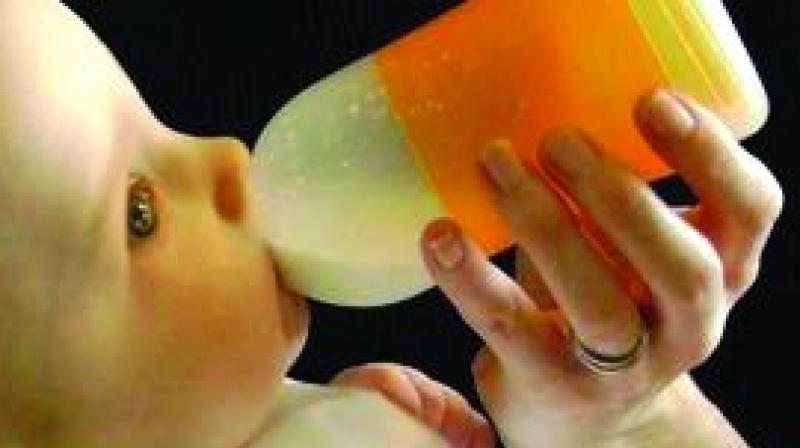C-sections push newborns into danger zone
Breastfeeding of a baby soon after birth provides vital antibiotic beside nutrient.

Visakhapatnam: Despite the increase in the number of institutional deliveries (85 per cent), there seems to be an under-estimation of the potential benefits that come along with breastfeeding the neonates within an hour of their birth.
The National Family Health Survey 4 (NFHS-4) data released recently revealed that only 58 per cent of babies below three years of age were breastfed within one hour after their birth in Vizag district.
The first milk of the mother or colostrum (a sticky yellow-white substance from the mother's breast soon after birth) is rich in antibodies and an essential nutrient. Feeding the colostrum to the newborn baby helps develop immunity against various medical conditions.
Some doctors attributed this trend to the increasing number of caesarean-sections, which often leave the mothers in pain to nurse the kids post-surgery. The pain from the incisions and stitches makes it difficult for mothers to sit up and breastfeed the baby. Also the effect of anaesthesia administered during the C-section takes time to wear off for the mothers to fully come out of the sedation.
In some cases, the mothers don’t get the help they need to start breastfeeding immediately after birth.
According to the United Nations International Children's Emergency Fund (UNICEF), the longer the breastfeeding is delayed, the higher the risk of the newborn’s death in the first month of its life. Delaying breastfeeding by 2-23 hours after birth increases the risk of the neonate death in the first 28 days of life by 40 per cent.
Delaying breastfeeding by 24 hours or more increases the neonate’s risk by 80 per cent.
Dr. P. Ramana Rao of Varam’s Multispeciality Hospital highlighted the benefits of breastfeeding the neonates within one hour of its birth. “The colostrum is loaded with immunoglobulins such has IgG and IgM. The other properties and components of the first milk of the mother help to improve the immunity of the newborn baby and provides protection against various pathogens,” said Dr. Ramana Rao.
The National Family Health Survey also identified a staggering number of 82 per cent caesarean deliveries in the district against the WHO’s recommended ideal rate of 15 per cent. There is also a clear difference in the number of C-section operations performed in public setting (26 per cent) and private clinics (60 per cent).

